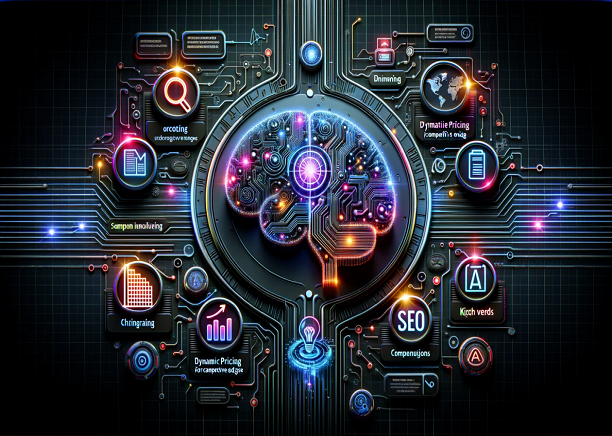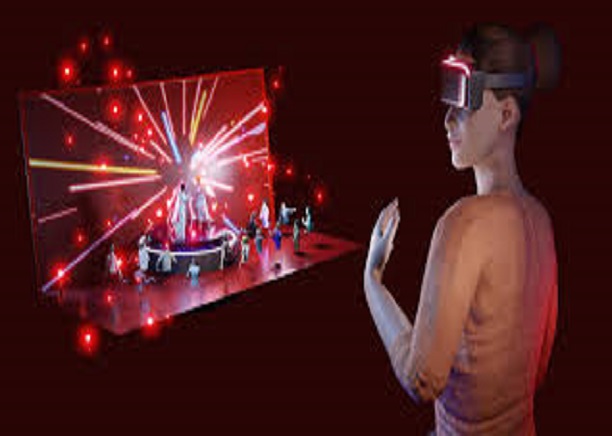-
Call for Anything
+91 9910371785
-
You may send an email
info@nuzninfotech.com
-
Sunday - Closed
Mon - Sat(10.00 AM - 7.00 PM)
The Future of Hotel Distribution: 5 Tech Innovations Every Hotelier Needs to Know
The hospitality industry is undergoing a digital transformation, driven by rapidly evolving technology and changing guest expectations. At the heart of this revolution is hotel distribution—the process of connecting guests with available accommodations through multiple channels. As hoteliers look to the future, staying ahead of the curve is essential to remain competitive and deliver an exceptional guest experience. Here are five tech innovations every hotelier needs to know about for the future of hotel distribution.
1. Dynamic Pricing with Artificial Intelligence
Traditional static pricing models are becoming obsolete in today’s fast-paced, data-driven world. AI-powered dynamic pricing tools analyze real-time data, including market demand, competitor rates, and booking patterns, to recommend optimal room rates. These systems can automatically adjust pricing across all channels, ensuring competitiveness while maximizing revenue.Dynamic pricing benefits both hotels and guests. Hotels reservation software achieve better revenue optimization, while guests receive fair, market-driven rates. The ability to instantly adapt to changes, such as increased demand during a local event, is key to staying ahead in a competitive market. Example: An AI-driven revenue management tool might detect a spike in demand due to a concert in the area and adjust room rates accordingly, ensuring the hotel captures maximum value without alienating budget-conscious travelers.

2. Seamless Channel Management with Unified Platforms
Distributing rooms across multiple online travel agencies (OTAs), booking platforms, and direct channels can be overwhelming without the right tools. Hotel reservation software has Unified channel management platforms that integrate all distribution channels into a single interface, allowing hotels to update availability, pricing, and promotions in real time.This technology eliminates the risk of overbookings and ensures consistency across all platforms, reducing manual errors and saving time for staff. Guests benefit from accurate availability and pricing, leading to increased trust and booking conversions. Example: A hotel management software using a channel manager can instantly update its inventory across its website, OTAs, and metasearch platforms with one click, ensuring a consistent experience for guests regardless of how they book.

3. Blockchain for Transparent and Secure Transactions
Online hotel booking software has a Blockchain technology that is emerging as a game-changer in hotel distribution by providing secure, transparent, and tamper-proof booking systems. By decentralizing the booking process, blockchain can reduce dependency on intermediaries, lower transaction costs, and provide guests with greater confidence in their bookings.This technology also offers potential solutions to issues like fraudulent bookings and payment disputes. Smart contracts can automate and enforce agreements between hotels and guests, further streamlining the process and building trust. Example: A blockchain-based booking platform can guarantee that a guest’s payment is securely transferred to the hotel management software only after their stay is confirmed, creating a transparent transaction process for all parties.

4. Voice and Chat-Driven Bookings with Conversational AI
Voice assistants and chatbots are redefining how guests interact with hotels during the booking process. Conversational AI tools like Google Assistant, Alexa, and hotel-specific chatbots allow guests to make bookings, ask questions, and request services through natural, conversational interactions.These AI-powered tools provide 24/7 support, ensuring guests can get instant responses to inquiries or make reservations without delay. Hotel booking management software that implement voice and chat-driven booking options offer a modern, user-friendly experience that aligns with the growing preference for voice-based interactions. Example: A guest might ask their voice assistant, “Find a hotel in downtown Miami for this weekend,” and instantly receive options, prices, and the ability to book a room—all powered by integrated conversational AI technology through Online hotel booking management software.

5. Virtual and Augmented Reality for Immersive Booking Experiences
Virtual reality (VR) and augmented reality (AR) are transforming the way guests explore hotels before making a booking. These technologies allow potential guests to take virtual tours of rooms, amenities, and surrounding areas, offering a highly interactive and immersive experience.AR can also enhance a guest’s stay by providing on-demand information through their smartphones, such as virtual guides to hotel facilities or nearby attractions. For hoteliers, this technology creates a competitive edge by helping guests make confident booking decisions and envisioning their stay in advance. Example: A hotel booking management software might offer a 360-degree virtual tour on its website, enabling guests to virtually walk through suites, restaurants, and event spaces before booking.

The future of hotel distribution is defined by innovation, efficiency, and guest-centric solutions. From AI-driven pricing to blockchain security and immersive booking technologies, these advancements are not just trends—they’re shaping the new standard for the hospitality industry. By adopting these five technologies, hoteliers can stay ahead of the competition, streamline operations, and deliver unforgettable experiences that meet and exceed guest expectations. As the industry continues to evolve, those who embrace the future of hotel distribution today will lead the way in shaping tomorrow’s hospitality landscape by the best hotel management software in India.
More Searches
Top restaurant management software companies
Restaurant management software
top 10 software companies in india
Best Billing Software In India
